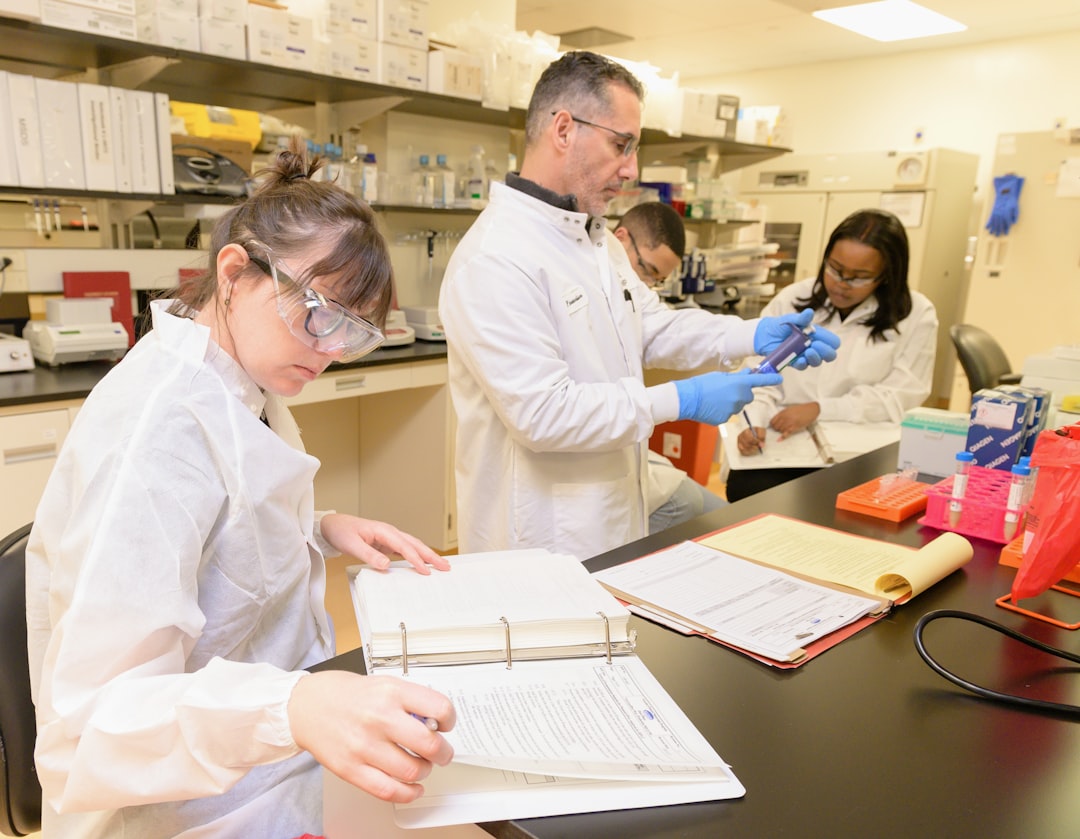
In today’s digital economy, survey sites have become an increasingly popular way for consumers to earn extra income from home. However, the proliferation of both legitimate survey sites and sophisticated scams makes it crucial to know how to distinguish between trustworthy platforms and fraudulent operations that could waste your time or compromise your personal information. Understanding the key differences between legitimate survey opportunities and scam operations is essential for anyone looking to participate in paid market research safely and effectively.
The landscape of online survey platforms has evolved significantly, with legitimate market research companies offering genuine opportunities alongside predatory scam sites designed to exploit unsuspecting participants. While authentic survey sites provide modest but reliable income streams for participants willing to invest their time, scam operations often promise unrealistic earnings while collecting personal information for malicious purposes or charging upfront fees for worthless services.
Understanding How Legitimate Survey Sites Operate
Legitimate survey sites function as intermediaries between market research companies and consumers, facilitating the collection of valuable consumer insights that help businesses make informed decisions about their products and services. These platforms operate on a revenue-sharing model where market research firms pay survey companies to access their participant databases, and a portion of these payments is passed along to survey participants as compensation for their time and opinions.
The business model behind authentic survey sites is straightforward and transparent. Companies need consumer feedback to improve their products, test new concepts, and understand market trends. Rather than conducting expensive in-house research, they partner with established survey platforms that maintain large databases of willing participants. These survey sites recruit participants, screen them for relevant demographics, and distribute surveys based on specific criteria required by the research companies.
Reputable survey sites typically offer compensation ranging from $0.50 to $5.00 per completed survey, depending on the length and complexity of the questionnaire. While these amounts may seem modest, they reflect the realistic value that market research companies place on individual consumer responses. The most successful survey participants understand that consistency and participation across multiple legitimate platforms are key to generating meaningful supplemental income.
Platforms like LevelSurveys exemplify the legitimate survey site model, offering participants a points-based system with a reasonable $5 minimum payout threshold and multiple redemption options. These established platforms maintain transparency in their operations, clearly communicate earning expectations, and provide reliable payment processing for participants who meet their minimum payout requirements.

Red Flags That Identify Survey Sites as Potential Scams
Recognizing the warning signs of fraudulent survey sites is crucial for protecting both your time and personal information. Scam survey sites often exhibit several characteristic red flags that distinguish them from legitimate platforms, and understanding these indicators can help you avoid falling victim to these deceptive operations.
One of the most prominent red flags is the promise of unrealistic earnings. Scam sites frequently advertise earning potential of $50-100 per hour or claim that participants can earn hundreds of dollars per day completing surveys. These promises are mathematically impossible given the legitimate market rates for consumer feedback, and they serve as bait to attract victims who may be desperate for quick income solutions.
Upfront fees represent another major warning sign of survey site scams. Legitimate survey sites never charge participants membership fees, activation fees, or any other upfront costs. If a survey platform asks for payment to access “premium” surveys or “high-paying” opportunities, it is almost certainly a scam designed to collect money from unsuspecting victims while providing little or no value in return.
Requests for sensitive personal information beyond basic demographic data should also trigger immediate suspicion. While legitimate survey sites may ask for age, gender, location, and general lifestyle information to match participants with appropriate surveys, they should never request Social Security numbers, bank account details, credit card information, or other sensitive financial data during the registration process.
Poor website design and functionality often indicate scam operations. Legitimate survey sites invest in professional web development and user experience design because they depend on participant satisfaction for long-term success. Scam sites, conversely, often feature poorly designed interfaces, numerous spelling and grammatical errors, broken links, and unprofessional presentation that reflects their temporary, exploitative nature.
Lack of clear contact information or customer support represents another significant red flag. Reputable survey platforms provide multiple ways to contact their customer service teams, including email addresses, phone numbers, and detailed help sections. Scam sites often provide only generic contact forms or email addresses that may not even function, making it impossible for participants to resolve issues or ask questions about their accounts.
Essential Verification Steps Before Joining Any Survey Site
Before committing time and personal information to any survey platform, conducting thorough due diligence can save you from potential scams and help you identify the most reputable opportunities. This verification process should be systematic and comprehensive, examining multiple aspects of the platform’s credibility and operational history.
Begin your verification process by researching the company’s background and ownership information. Legitimate survey sites typically provide clear information about their corporate structure, including company registration details, physical business addresses, and information about their leadership team. This transparency demonstrates accountability and provides recourse if issues arise with your participation or payments.
Examine the platform’s terms of service and privacy policy carefully, paying particular attention to how they collect, use, and protect your personal information. Legitimate survey sites maintain detailed privacy policies that comply with relevant data protection regulations and clearly explain their data handling practices. Be wary of platforms with vague or missing privacy policies, as this often indicates poor data security practices or potential misuse of participant information.
Search for independent reviews and testimonials from actual users across multiple platforms, including review sites, social media, and consumer protection forums. Look for patterns in user feedback, paying attention to comments about payment reliability, survey availability, customer service quality, and overall user experience. Be skeptical of platforms that have only positive reviews or reviews that seem artificially generated.
Verify the platform’s payment methods and payout policies by examining their FAQ sections and terms of service. Legitimate survey sites offer multiple payment options such as PayPal, bank transfers, or gift cards, and they clearly communicate their minimum payout thresholds and processing times. Platforms that only offer obscure payment methods or have unreasonably high minimum payout requirements may be attempting to avoid making payments to participants.
Check for proper business licensing and industry affiliations. Many legitimate survey companies belong to professional associations such as the Market Research Society or maintain certifications that demonstrate their commitment to ethical research practices. While not all legitimate platforms will have these credentials, their presence can provide additional confidence in the platform’s authenticity.

How Legitimate Survey Sites Protect Your Personal Information
Understanding how reputable survey platforms handle and protect participant data is essential for making informed decisions about which sites to trust with your personal information. Legitimate survey sites implement comprehensive data protection measures that go far beyond basic security protocols, reflecting their commitment to participant privacy and regulatory compliance.
Established survey platforms employ industry-standard encryption technologies to protect data transmission and storage. This includes SSL certificates for secure data transmission between your device and their servers, as well as encrypted databases that protect stored participant information from unauthorized access. You can verify SSL protection by looking for the padlock icon in your browser’s address bar and confirming that the site URL begins with “https” rather than “http.”
Reputable platforms also implement strict access controls within their organizations, ensuring that only authorized personnel can access participant data and only for legitimate business purposes. This includes regular security training for employees, background checks for staff with data access, and audit trails that track who accesses what information and when. These internal controls help prevent data breaches and unauthorized use of participant information.
Data minimization represents another key privacy protection employed by legitimate survey sites. Rather than collecting excessive personal information, reputable platforms only gather data that is necessary for matching participants with appropriate surveys and processing payments. They avoid requesting sensitive information such as Social Security numbers, credit card details, or other financial data that isn’t required for their legitimate business operations.
Many established survey platforms also provide participants with control over their data through account settings that allow users to update their information, adjust privacy preferences, and even request data deletion. This level of transparency and user control reflects the platform’s commitment to respecting participant privacy and complying with data protection regulations such as GDPR and CCPA.
Legitimate survey sites also maintain clear data retention policies that specify how long they keep participant information and under what circumstances they might share data with third parties. These policies are typically detailed in their privacy statements and reflect careful consideration of both business needs and participant privacy rights.
Realistic Earning Expectations for Legitimate Survey Participation
Setting appropriate expectations about survey site earnings is crucial for avoiding disappointment and making informed decisions about how to allocate your time across different earning opportunities. While legitimate survey sites can provide supplemental income, understanding the realistic earning potential helps you develop effective strategies and avoid falling for scam sites that promise unrealistic returns.
Most legitimate survey sites offer compensation ranging from $0.50 to $5.00 per completed survey, with the majority of surveys falling in the $1-3 range. The compensation typically correlates with survey length and complexity, with longer surveys about specialized topics generally offering higher payments than brief general interest questionnaires. However, even the highest-paying legitimate surveys rarely exceed $10-15, and such opportunities are relatively uncommon.
The time investment required for survey completion varies significantly, with most surveys taking between 10-30 minutes to complete. This translates to an effective hourly rate of approximately $3-12 per hour for most participants, which is considerably lower than minimum wage in most jurisdictions. Understanding this rate structure helps explain why survey participation is best viewed as a supplemental income source rather than a primary earning strategy.
Successful survey participants typically report earning between $50-200 per month by maintaining active participation across multiple legitimate platforms. This earning range reflects consistent daily participation, profile optimization to qualify for more surveys, and strategic selection of higher-paying opportunities when available. Participants who treat survey taking as a part-time job and dedicate several hours daily to the activity may achieve earnings at the higher end of this range.
Geographic location significantly impacts earning potential, as survey availability and compensation rates vary based on demographic demand from market research companies. Participants in major metropolitan areas or key demographic segments may have access to more survey opportunities, while those in rural areas or less commonly targeted demographics may find fewer available surveys and lower overall earning potential.
Platforms like LevelSurveys demonstrate realistic earning expectations with their transparent points-based system and $5 minimum payout threshold. Their 4+ star TrustPilot reviews reflect user satisfaction with achievable earning goals rather than inflated promises, and their multiple payout options provide flexibility for participants to access their earnings through their preferred methods.
Best Practices for Maximizing Legitimate Survey Site Earnings
Developing effective strategies for survey site participation can significantly improve your earning potential while minimizing the time spent on unproductive activities. These best practices reflect insights from experienced survey participants and focus on legitimate methods for optimizing your survey-taking experience.
Profile optimization represents one of the most important factors in survey site success. Complete your demographic profiles thoroughly and honestly across all platforms you join, as detailed profiles help survey sites match you with relevant opportunities more effectively. Include information about your occupation, income range, household composition, interests, and purchasing habits, as these factors influence survey availability and can qualify you for higher-paying specialized surveys.
Diversification across multiple legitimate platforms maximizes your earning potential by providing access to a broader range of survey opportunities. Rather than relying on a single survey site, successful participants typically maintain active accounts with 5-10 reputable platforms, allowing them to take advantage of different companies’ survey offerings and avoid periods when individual sites have limited opportunities available.
Timing your survey participation can significantly impact your success rate and earning potential. Many survey opportunities operate on a first-come, first-served basis, so checking for new surveys during peak posting times (typically early morning or early evening) can improve your chances of qualifying for higher-paying opportunities before they reach capacity.
Honest and consistent responses are essential for maintaining good standing with survey platforms and qualifying for premium opportunities. Survey sites employ quality control mechanisms that detect inconsistent or dishonest responses, and participants who fail these checks may be disqualified from surveys or even banned from platforms. Providing thoughtful, consistent answers not only maintains your account status but may also qualify you for follow-up surveys or special research opportunities.
Time management strategies help maximize your effective hourly rate by focusing on surveys that offer the best compensation relative to completion time. Track your completion times and compensation rates across different survey types and platforms, then prioritize opportunities that provide the highest return on your time investment. This data-driven approach helps you identify the most profitable survey categories and platforms for your particular demographic profile.

Common Survey Site Scams and How to Avoid Them
Survey site scams have become increasingly sophisticated, employing various tactics to deceive potential participants and extract money or personal information. Understanding these common scam types and their warning signs is essential for protecting yourself while pursuing legitimate survey opportunities.
Advance fee scams represent one of the most prevalent survey site fraud types, where scammers charge upfront fees for access to “premium” survey databases or “guaranteed high-paying” opportunities. These scams often use persuasive marketing materials featuring fake testimonials and manipulated earnings screenshots to convince victims that paying the initial fee will lead to substantial returns. In reality, victims who pay these fees typically receive access to lists of surveys that are either non-existent, already freely available, or lead to additional scam sites.
Identity theft operations disguised as survey sites collect extensive personal information under the pretense of demographic profiling, then use this information for fraudulent activities such as opening credit accounts or filing false tax returns. These scams often request information that legitimate survey sites would never need, such as Social Security numbers, mother’s maiden names, or detailed financial information about bank accounts and credit cards.
Fake survey portals that promise high earnings but never actually pay participants represent another common scam type. These sites may offer legitimate-looking surveys and even credit points or cash to participant accounts, but when users attempt to cash out their earnings, they discover that the minimum payout thresholds are unreachably high or that the payment processing system doesn’t actually function.
Multi-level marketing schemes disguised as survey opportunities attempt to recruit participants into pyramid-style selling structures rather than providing legitimate survey work. These scams often promise substantial earnings through survey participation but then reveal that the real money comes from recruiting other participants and selling products or services to friends and family members.






































